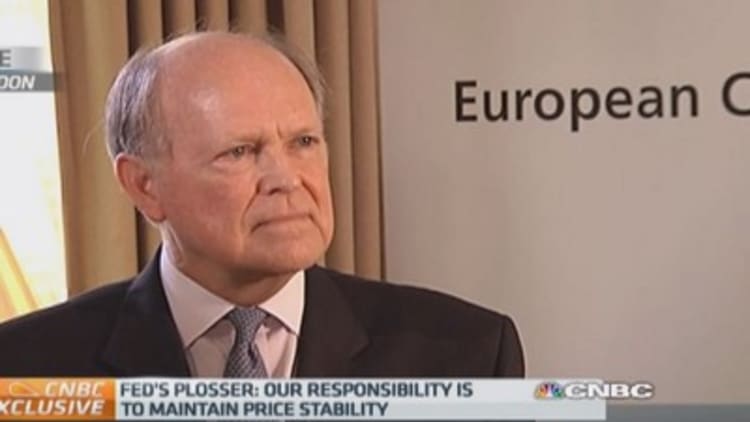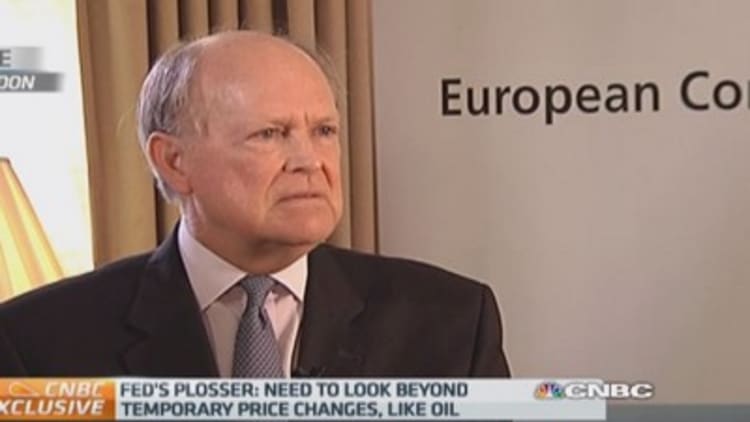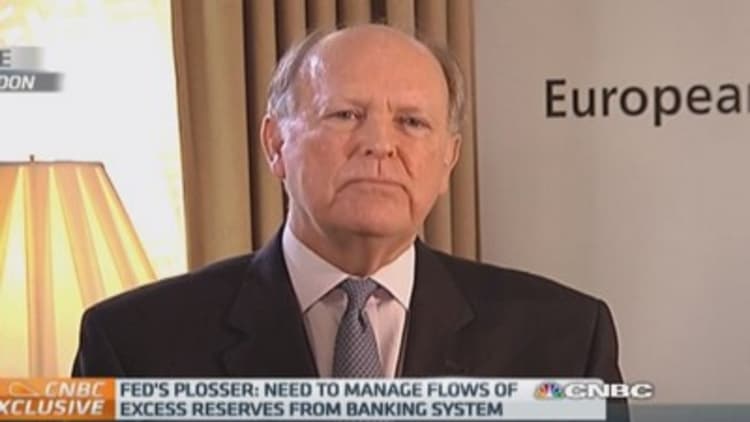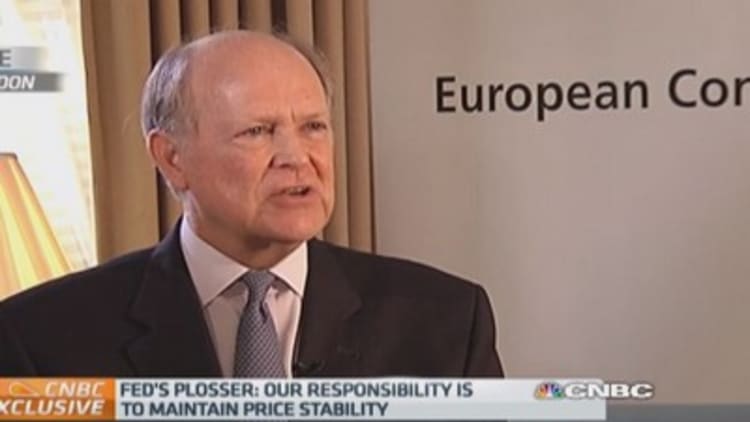



Interest rates in the U.S. are unprecedentedly low, even allowing for falling oil prices and "very modest" wage growth, Philadelphia Federal Reserve President Charles Plosser told CNBC on Tuesday, who expressed concern over the low levels.
Plosser, who is one of the Fed's most outspoken "hawks" expressed concern over the low rates. Last month, the Fed confirmed that it would hold the target range for the federal funds rate at 0 to 0.25 percent.
"There are many indicators that tell us interest rates are too low," Plosser told CNBC from the UBS European Conference in London.
Read MoreFed keeps rates low, but brace for the inevitable
"There is no precedented history to have rates at zero. I think we are really behaving in a way which is outside of historical norms and that should make us nervous," he added.
Plosser conceded that "wage growth has been very modest" and that falling oil prices were pressuring short-term inflation lower—but said that rates were too low nonetheless.
"Given the unemployment rate, and even given low inflation, we are below where we would normally be," he said. "I think this is something we should be cognisant of."
Plosser added that the Fed should also avoid responding to short-term fluctuations in either the U.S. dollar or the stock market.
"The dollar is not our responsibility," Plosser told CNBC.
Read MoreSurprisingly hawkish Fed sends markets reeling
He said the appreciation in the dollar would have "some reverberations", but these would be limited because the U.S. economy was "pretty much closed" when compared to Europe or the U.K.
Plosser is due to retire from the Fed in March next year. He was an economics professor at the University of Rochester before he became the 10th president of the Philly Fed in August 2006.
His retirement will coincide with that of Dallas Fed's Richard Fisher, another central banker who has stridently advocated paring back monetary stimulus.
Read MoreThe Fed is making a major shift in rate policy
Plosser and Fisher's departure could change the tenor of debate within the Fed policy-setting committee, giving it a more dovish bent.
"I am sure that a wide range of views will continue to be discussed," Plosser said regarding his retirement, for which he has no immediate plans.
"There will still be a healthy debate I'm sure."
—Writing by CNBC's Katy Barnato; reporting by Carolin Roth

